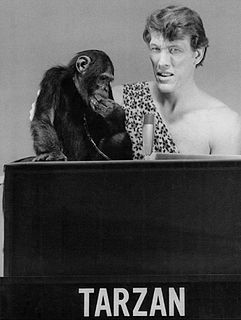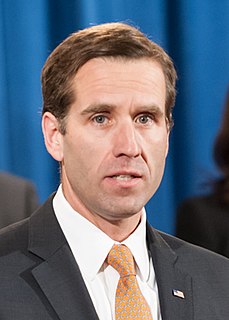A Quote by Arthur Koestler
Show us not the aim without the way. For ends and means on earth are so entangled That changing one, you change the other too; Each different path brings other ends in view
Related Quotes
The end is what you want, the means is how you get it. Whenever we think about social change, the question of means and ends arises. The man of action views the issue of means and ends in pragmatic and strategic terms. He has no other problem; he thinks only of his actual resources and the possibilities of various choices of action. He asks of ends only whether they are achievable and worth the cost; of means, only whether they will work. ... The real arena is corrupt and bloody.
Now it is usual-but not to say normal-for people to interest themselves primarily in means, without noticing that means exist only in relation to ends and that, in accepting certain means, they unconsciously accept the ends that make them so. In other words, they accept whatever philosophy happens to be embodied in the values and institutions of a particular civilation.
It is interesting to contemplate an entangled bank clothed with many plants of many kinds with birds singing on the bushes, with various insects flitting about and with worms crawling through the damp earth and to reflect that these elaborately constructed forms so different from each other and dependent on each other and so complex a manner have all been produced by laws acting around us.
Economics is a theoretical science and as such abstains from any judgement of value. It is not its task to tell people what ends they should aim at. It is a science of the means to be applied for attainment of ends chosen, not, to be sure, a science of the choosing of ends. Ultimate decisions, the valuations and the choosing of ends, are beyond the scope of any science. Science never tells a man how he should act; it merely shows how a man must act if he wants to attain definite ends.
We come here because we too feel a responsibility for the human community. To preserve and develop a human quality of life is the common responsibility of us all. It is not fitting that those concerned with the various aspects of the human be alienated from each other. Both you and ourselves represent forces too profound and aim at objectives too significant for either of us to succeed completely without the assistance of the other. The urgency of our work impels us to get on with our common task lest a new period of disaster erupt over the Earth.
Science, by itself, cannot supply us with an ethic. It can show us how to achieve a given end, and it may show us that some ends cannot be achieved. But among ends that can be achieved our choice must be decided by other than purely scientific considerations. If a man were to say, "I hate the human race, and I think it would be a good thing if it were exterminated," we could say, "Well, my dear sir, let us begin the process with you." But this is hardly argument, and no amount of science could prove such a man mistaken.
In the 17 years since I graduated from this great College of Law, I have seen that, for many of us, it becomes increasingly easy to rationalize our actions in the name of expediency when facing difficult decisions-to choose a path where the ends justify the means. I want to ask you to challenge Machiavelli's philosophy. I want to humbly suggest that you be the guardians of a more complicated truth: that the means are as important-and sometimes even more important-than the ends.
What's important on a comedy show, or any show, is that some stories have to go somewhere. There have to be ends to the beginnings and middles you create. But sometimes it's like a way station on the highway, then the actual thing doesn't have to be this giant, climactic, life-changing, game-changing thing.
Intelligence makes clear to us the interrelationship of means and ends. But mere thinking cannot give us a sense of the ultimate and fundamental ends. To make clear these fundamental ends and valuations and to set them fast in the emotional life of the individual, seems to me precisely the most important function which religion has to form in the social life of man.




































